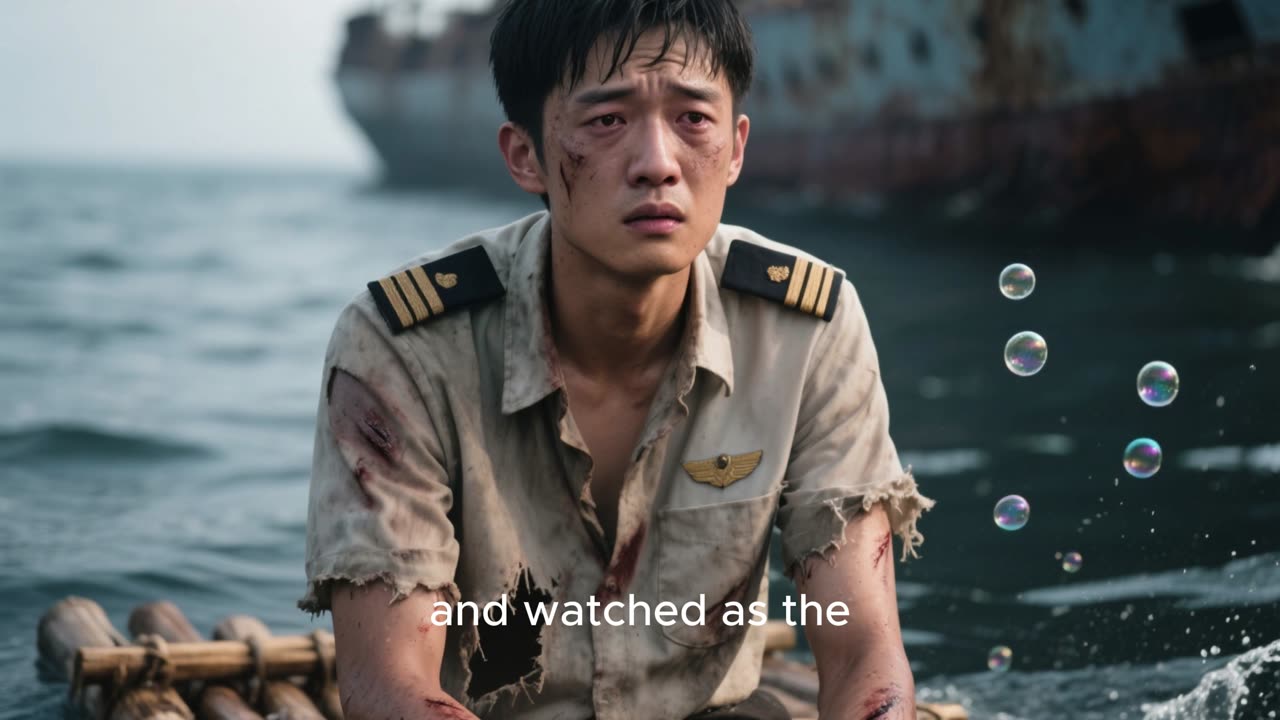Premium Only Content

The Ocean Prison
The Survival of Poon Lim
The sea has always been both a giver and a taker of life. For sailors, it is a companion and a predator, capable of beauty so endless it steals your breath — and of storms so merciless they steal your soul. In November 1942, during the chaos of World War II, a quiet Chinese sailor named Poon Lim found himself alone in that endless sea, drifting across the Atlantic for one hundred and thirty-three days. What began as a voyage across war-torn waters became a test of endurance that would redefine what it means to survive.
Poon Lim worked as a steward aboard the SS Benlomond, a British merchant ship carrying supplies from Cape Town to Suriname. The ship sailed cautiously, knowing the Atlantic was infested with German U-boats hunting Allied vessels. For days, the voyage passed peacefully under the gray sky. But on November 23, without warning, a torpedo struck the ship’s hull. The explosion tore through metal and fire filled the decks. Within minutes, the Benlomond began to sink.
As chaos erupted, Poon Lim grabbed a life jacket and leapt into the sea. Around him, the ocean boiled with debris and oil. The ship vanished beneath the waves, leaving him surrounded by nothing but silence and floating wreckage. Dozens of men had gone down with the ship; he was alone. For two hours, he swam through the wreckage, praying for anything that would keep him alive. Then, through the rising waves, he saw something — a small wooden raft, half a lifeboat, carrying a few supplies. He climbed aboard, soaked and shaking, and watched as the last bubbles of the Benlomond disappeared below.
The raft was barely larger than a door — two meters long, stocked with a few cans of biscuits, some water, a torch, a knife, and fishing gear. Poon Lim knew the supplies would not last long. He rationed his water to a few sips a day and his food to small bites, stretching what little he had into days. When the biscuits ran out, he fashioned a fishing line from rope threads and used bits of wire to make hooks. Slowly, he learned to catch fish, slicing them open and drinking their blood to survive.
Days blurred into weeks. The sun burned his skin by day, and the cold winds froze him by night. Salt sores covered his body, and storms tossed the raft like a toy. Once, he saw a ship on the horizon and waved frantically, tying a red cloth to a pole, but it passed without seeing him. Another time, a German U-boat surfaced near him, its crew staring silently before vanishing beneath the waves again. He was left to the sea, forgotten by war and by men.
Sharks began to circle his raft, drawn by the smell of fish. Poon Lim watched them carefully, learning their movements. When hunger became unbearable, he used his knife to catch one, battling it with trembling arms until he dragged it onto the raft. He drank its blood and dried its meat in the sun. He collected rainwater in his canvas sail, stored it in empty cans, and kept count of the days by tying knots in a rope.
Time lost its meaning. He spoke to the sky, to the waves, to the memory of home. He dreamed of his mother’s cooking, of the warmth of human voices, of the sound of land. He grew thin but never stopped moving, never stopped thinking. When the storms came, he tied himself to the raft, praying as the ocean rose like a beast to devour him. But each time, the sea spared him.
After 133 days, a small Brazilian fishing vessel spotted a figure drifting in the distance — a man barely alive, waving weakly from a raft that looked more like driftwood than a boat. They pulled him aboard, astonished to find him conscious. His body was frail, his face burned and scarred, but his spirit was fierce. He had survived more than four months alone at sea, a feat no one thought possible.
When he returned to civilization, doctors could hardly believe his story. His endurance became legendary, and the U.S. Navy studied his methods to teach future sailors how to survive adrift. Poon Lim himself said simply, “I would never give up. I told myself, I will make it back alive.”
He lived a long life after that, carrying the ocean’s memory within him — the vast silence, the hunger, the storms, and the stubborn flame that refused to go out. His story remains one of the longest recorded instances of survival at sea by a single human being, a testament to the power of patience, ingenuity, and hope.
Because the sea takes many, but sometimes — just sometimes — it gives one back.
-
 20:52
20:52
Professor Nez
18 hours agoThe TRUTH is Actually WORSE than we Thought...
9.26K18 -
 8:59
8:59
MattMorseTV
17 hours ago $0.05 earnedTrump’s DIRE WARNING to the Senate GOP.
72.7K81 -
 2:13:33
2:13:33
Side Scrollers Podcast
19 hours agoAsmongold SUED for Emotional Distress + Hasan REJECTED+ INSANE Plane Crash + More | Side Scrollers
87.4K24 -
 21:39
21:39
Nikko Ortiz
4 days agoI Take A North Korean Shooting
79.8K11 -
 23:01
23:01
GritsGG
17 hours agoWarzone Solo Dubular! Last Night Time Solo???
13.6K2 -
 22:47
22:47
The Pascal Show
15 hours ago $0.04 earnedTHEY’RE HIDING EVIDENCE?! Candace Owens EXPOSES Foreign Connection In Charlie Kirk Shooting
22.2K25 -
 LIVE
LIVE
Lofi Girl
3 years agolofi hip hop radio 📚 - beats to relax/study to
276 watching -

FreshandFit
14 hours agoLas Vegas Takeover!
197K18 -
 2:19:29
2:19:29
Badlands Media
15 hours agoDevolution Power Hour Ep. 404
78.9K42 -
 6:02:58
6:02:58
Drew Hernandez
1 day agoGOP COOKED INTO DENIAL & 12 ISRAELI-LINKED PHONES DETECTED AT UVU DAY OF CK EXECUTION?
57.8K34